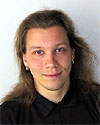
![]() Front Page
Front Page
RESEARCH TOPICS
![]() Automatic Essay Assessment
Automatic Essay Assessment
![]() Concretizing Technologies in Special Education
Concretizing Technologies in Special Education
![]() Development Project for Technology Education
Development Project for Technology Education
![]() Information and Communication Technology for Development
Information and Communication Technology for Development
![]() Kids' Club
Kids' Club
![]() Mobile Learning
Mobile Learning
![]() Seniors' Club
Seniors' Club
![]() Software Visualization & Jeliot
Software Visualization & Jeliot
![]() Technologies for Children with Individual Needs
Technologies for Children with Individual Needs
![]() Text and Program Analysis
Text and Program Analysis
![]() Virtual Studies of Computer Science
Virtual Studies of Computer Science
WHO & WHAT
![]() News @ EdTech
News @ EdTech
![]() People @ EdTech
People @ EdTech
![]() Mémoire d'un Étudiant Français
Mémoire d'un Étudiant Français
![]() Publications @ EdTech
Publications @ EdTech
![]() IMPDET
IMPDET
FUNDERS
INDUSTRIAL PARTNERS
CONFERENCES, WORKSHOPS & SUMMER SCHOOLS
Past

ETHNOCOMPUTING
Project's web-pages:
http://www.ethnocomputing.org/
The prevailing Westernness of Computer Science is a major problem with the Computer Science education in many non-Western countries. The students not only face a new subject, but also a fundamentally different philosophy and problem solving methods.
Ethnocomputing challenges the prevailing way of thinking that in order to keep up with the West, other cultures have to adapt to Western ways of thinking. Relying on constructivist theories, our argument is that the universal theories of computing take different forms in different cultures, and that the European view on abstract ideas of computing is culturally bound, too.
Studying ethnocomputing - i.e. the computational ideas within a culture - may lead to new findings that can be used both in developing the Western view of Computer Science and in improving Computer Science education in foreign cultures.
Matti Tedre, firstname.lastname@cs.joensuu.fi